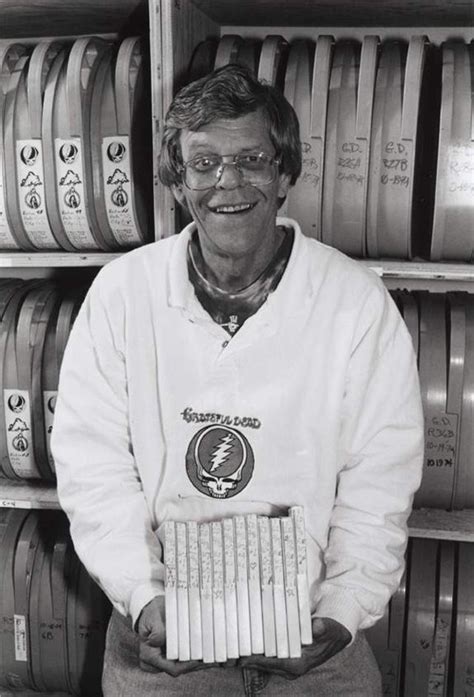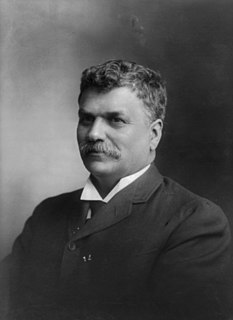Top 144 Eras Quotes & Sayings - Page 3
Explore popular Eras quotes.
Last updated on November 19, 2024.
These developments - a massive transfer of land by way of inheritance and purchase, an unprecedented rise in the profitability of land and increasing intermarriage between Celtic and English dynasties - helped to consolidate a new unitary ruling class in place of the more separate and specific landed establishments that had characterised England, Scotland, Wales and Ireland in the Tudor and Stuart eras.
When you say something, say it not for a specific day, not for a specific era, not for a specific country, but say it for all the days, for all the eras and for all the countries. Speak universal, and thus you don't have to speak thousands times; you speak once and you will be heard even ten thousand years later!
I spent twenty-two seasons playing professional baseball. Naturally, success in that field is measured by batting averages, number of home runs and RBIs, fielding averages, ERAs and other statistics. Fame, notoriety and the bright lights fade quickly. To me, true success in life would be to develop both physically and spiritually to our fullest and to endure to the end!
Another potentiality of our irrepressible juvenility is a capacity to maintain until the onset of senility an active creative interaction with our environment. We persist in exploring, investigating, inventing, discovering. In these respects humans of all eras, in all societies, all ages of life, are more like baby chimps and not at all like the sedate and rigidly conforming adult chimpanzee, who hasn't changed much since she was five or six years old.
Perhaps, indeed, there are no truly universal ethics: or to put it more precisely, the ways in which ethical principles are interpreted will inevitably differ across cultures and eras. Yet, these differences arise chiefly at the margins. All known societies embrace the virtues of truthfulness, integrity, loyalty, fairness; none explicitly endorse falsehood, dishonesty, disloyalty, gross inequity. (Five Minds for the Future, p136)
Whatever art offered the men and women of previous eras, what it offers our own, it seems to me, is space - a certain breathing room for the spirit. The town I grew up in had many vacant lots; when I go back now, the vacant lots are gone. They were a luxury, just as tigers and rhinoceri, in the crowded world that is making, are luxuries. Museums and bookstores should feel, I think, like vacant lots - places where the demands on us are our own demands, where the spirit can find exercise in unsupervised play.
You've probably heard about the theory of steam-engine time - that even after the steam engine had been invented, it had to wait until people were ready to make use of it. The same thing happens in literary circles. The truth is, I'm not terribly interested in Victorian times; I'm interested in Victorian writers. I'm interested in most eras of history, but not the Victorian Era especially. I was interested in the John Franklin Expedition. I was interested in these last five weird years of Dickens' life. And I just have to take the age that comes with all that when I write about it.
I found everything so remote but, at the same time, familiar when I occasionally looked into the mountains, rocks, pine trees and plums depicted in old literati paintings. My innermost feeling which was awakened by the same mountains, rocks, pine trees and plums has been totally and utterly changed. Moreover, like an apparition, it hides deep down in my vessels. The very trees and rocks have become the storage of memories and emotions from various eras. Forced by the rapid change of time and perspective, I cannot help but feel urged to face up to these things once again.
My grandfather was a Holocaust survivor and his life and history were very formative to myself and my family. The almost unimaginable dichotomy between the different eras of his life always crushed my brain on some level. That this guy who was shoveling carob chips out of a barrel and restocking yogurt popsicles could also have those numbers on his arm. It was an inconceivable juxtaposition. His experience was the main window for our family into any kind of social consciousness, or sense of history, or politics, even though a lot of it went unsaid.
One way or another, I think virtually all of the prophets and early Apostles had their visionary moments of our time--a view that gave them courage in their own less successful eras. Those early brethren knew an amazing amount about us. Prophets such as Moses, Nephi, and the brother of Jared saw the latter days in tremendously detailed vision. Some of what they saw wasn't pleasing, but surely all those earlier generations took heart from knowing that there would finally be one dispensation that would not fail.
Music's totally eclectic now. I saw a DJ the other day, he was on Virgin radio over here, and he said he played "Going Underground", the Jam song, on his breakfast show. Then he got a text from some young kid asking if was a new band. I think a lot of people these days, younger people as well, are aware of all sorts of music, really. If you're into the Libertines you probably also have to be aware of the Beatles, or the Kinks. I think there's a better, possibly greater appreciation for all music, of all eras, I think.
The human mind has a natural tendency to explore what has passed in distant ages in scenes with which it is familiar: hence the taste for National and Local Antiquities. Geology gratifies a larger taste of this kind; it inquires into what may appropriately be termed the Antiquities of the Globe itself, and collects and deciphers what may be considered as the monuments and medals of its remoter eras.
The fields of clinical psychology and psychiatry exist specifically to help the emotionally unstable become more stable and lead happier, healthier lives. Unlike in the eras of Vincent Van Gogh and Abraham Lincoln, there is now professional help available for those who suffer from emotional illness. Treatment may require therapy or even medication, but hope is now available every single day in practically every city in the civilized world.
At first critics classified authors as Ancients, that is to say, Greek and Latin authors, and Moderns, that is to say, every post-Classical Author. Then they classified them by eras, the Augustans, the Victorians, etc., and now they classify them by decades, the writers of the '30's, '40's, etc. Very soon, it seems, they will be labeling authors, like automobiles, by the year.
No other work has more often been blamed for more heinous crimes by the perpetrators of such crimes. The Bible has been named as the instigating or justifying factor for many individual and mass crimes, ranging from the religious wars, inquisitions, witch burnings, and pogroms of earlier eras to systematic child abuse and ritual murders today.
When human beings are regarded as moral beings, sex, instead of being enthroned upon the summit, administering upon rights and responsibilities, sinks into insignificance and nothingness. My doctrine then is, that whatever it is morally right for man to do, it is morally right for woman to do. Our duties originate, not from difference of sex, but from the diversity of our relations in life, the various gifts and talents committed to our care, and the different eras in which we live.
I don't have an agenda. I don't have things I want to get to or something. I have like a broad, slim grasp of certain periods and certain shows within that period, an awareness of them, but they demand re-listening. I have a flimsy grasp of all the eras and ideas within each period of what would be a good show to think of.
Reading, therefore, is a co-production between writer and reader. The simplicity of this tool is astounding. So little, yet out of it whole worlds, eras, characters, continents, people never encountered before, people you wouldn’t care to sit next to in a train, people that don’t exist, places you’ve never visited, enigmatic fates, all come to life in the mind, painted into existence by the reader’s creative powers. In this way the creativity of the writer calls up the creativity of the reader. Reading is never passive.
So I did a program with the Recording Academy, the Grammy Museum. So pretty much they take, like, one hundred kids during the summer and for a week or two every day they go over something different in music history. Then during the music history part of the program, they would just tell us about the different eras.
I didn't want to do a costume drama. It's a great thing to do, but I've done them, and I didn't want to do the same thing again. Of course, costume dramas can be from all different eras, but at the time, I just felt very sure that I didn't want to be boxed in as an English actress. I wanted to be an actress, rather than an English actress.























